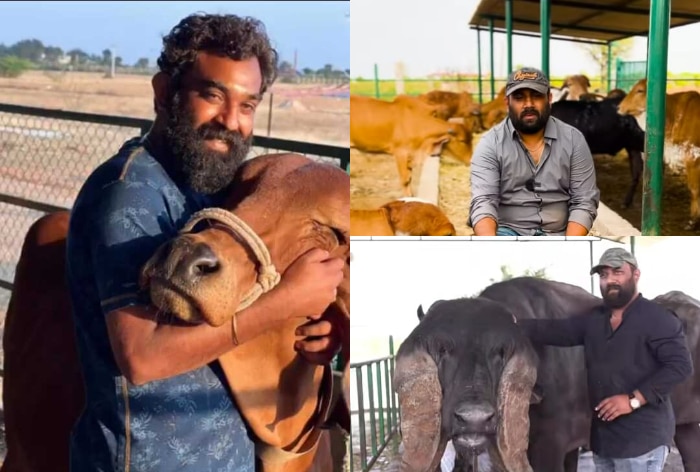And at a pivotal moment, when Amith lost one of his clients to cancer, he made the decision to leave the business world and follow in his grandfather’s footsteps.
New Delhi: In today’s world, more and more people are choosing organic goods for everyday use, and these organic products often come with an extra price tag because they are closer to nature. Amith Kishan, a former banker, saw an opportunity in the organic farming sector, which is still largely unorganized in the country.
Amith Kishan’s farm in Andhra Pradesh is a peaceful place where farmers sow only native seeds, bulls are free in the fields to plow the soil, cows graze on pollution-free open grasslands and rural women make ghee in a clay pot heated over a slow wood fire, according to The Better India.
Banker to Farmer – Amit Kishan’s Journey
Amith partnered with several banks such as ICICI, Bajaj, Axis, HDFC and Punjab National Bank (PNB) which handled top companies in Bengaluru in a span of eight years. However, he always wanted to follow his roots and become a farmer like his grandfather was.
“My grandfather was a well-known farmer in the area. As a kid, we used to go to the farm and play with the soil while he worked in the fields,” he recalled, as reported by The Better India.
And at a pivotal moment, when Amith lost one of his clients to cancer, he made the decision to leave the business world and follow in his grandfather’s footsteps.
“There was someone who was insured with me. In a span of 1.5 years he died of cancer. I did all the claim formalities for the family. Looking at this, I understood that we have to correct the way we live and what we eat, since our food is not enough. I wanted to correct that. Everything pushed me to do something better,” he said in the report.
Together with his brother, he founded Hebbevu Farms in 2019. Both have made every effort to know what suits them best.
“We didn’t know what to grow and when. When farmers in the neighboring fields grew peppers, we grew groundnuts. We didn’t understand the kharif and rabi seasons,” Amith said, recalling their early months.
After three years of research and development, he founded Hebbevu Farms in 2019 with his brother Ashrith. “We started everything from scratch. We met many organic farmers to understand the essence of farming,” he adds.
Challenges they faced
It is difficult for natural agriculture to sustain when there is a thriving market of fertilizers and chemical-based agriculture around you. It’s not just the cost factor, the soil quality, the type of micro-organisms in the soil, everything is affected if agriculture becomes too far removed from nature.
“All the farmers in the surrounding fields used chemicals to grow food. The moment I started growing food without chemicals, people called me a fool and laughed at me. They would spray chemicals and insects would attack my farm. In order to survive, I also tried to educate them about natural and organic ways of farming,” Amith said.
To achieve better root growth, Amith began plowing the soil below four feet. He replaced fertilizer with cow manure, cow urine and bananas to increase the potassium content in the soil.
“As a result, we started seeing earthworms in our soil, which became very rare because of the chemicals used in agriculture. But the boost in agriculture was seen when we introduced native animals to our farms,” he said.
Amith’s farm today is home to nearly 700 native cows and buffaloes, including Gir, Sahiwal and Jafarabadi, the report said.
“The cows, buffaloes and bulls help us practice natural farming, sell dairy products, make biogas and boost agricultural tourism,” Amith told The Better India.
The farm’s reliance on solar energy has reduced its monthly energy costs from Rs 3 lakh to Rs 40,000.
Starting with a loan of Rs 1.5 crore and a farmland of 15 hectares, Amith today achieves an annual turnover of Rs 21 crore from his field spread over 650 hectares of farmland.

Don’t miss the latest updates.
Subscribe to our newsletter today!



